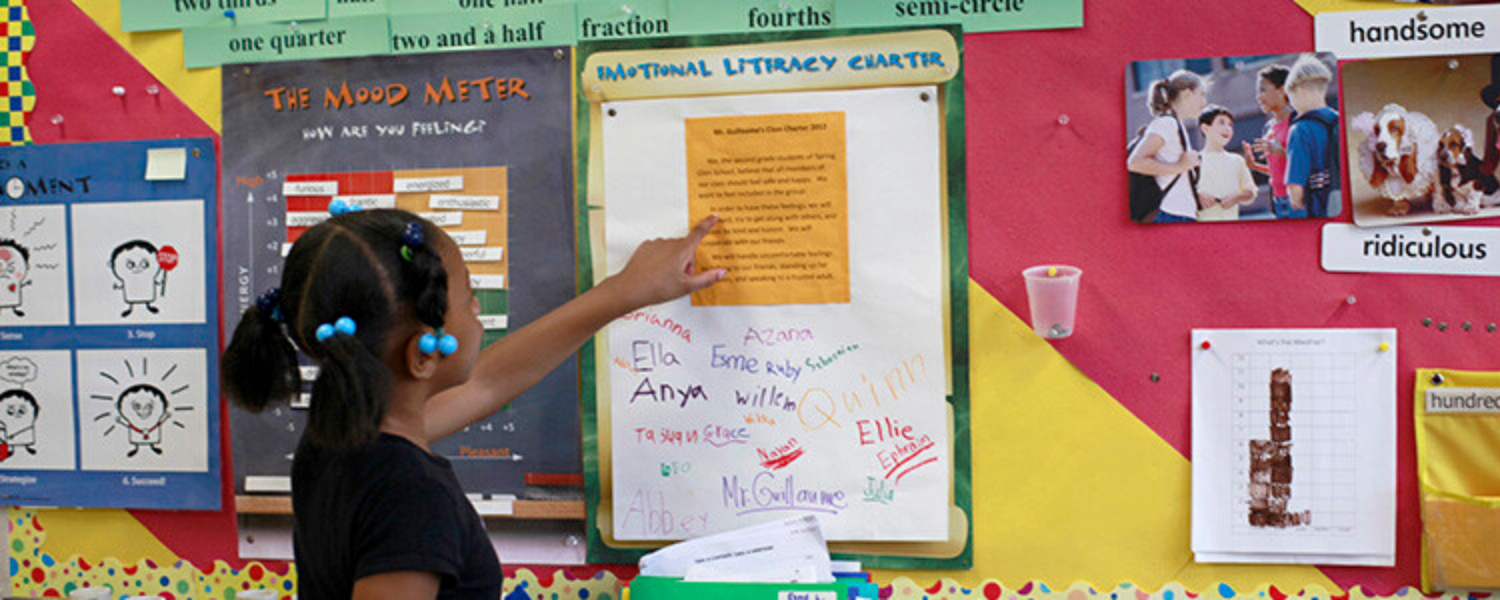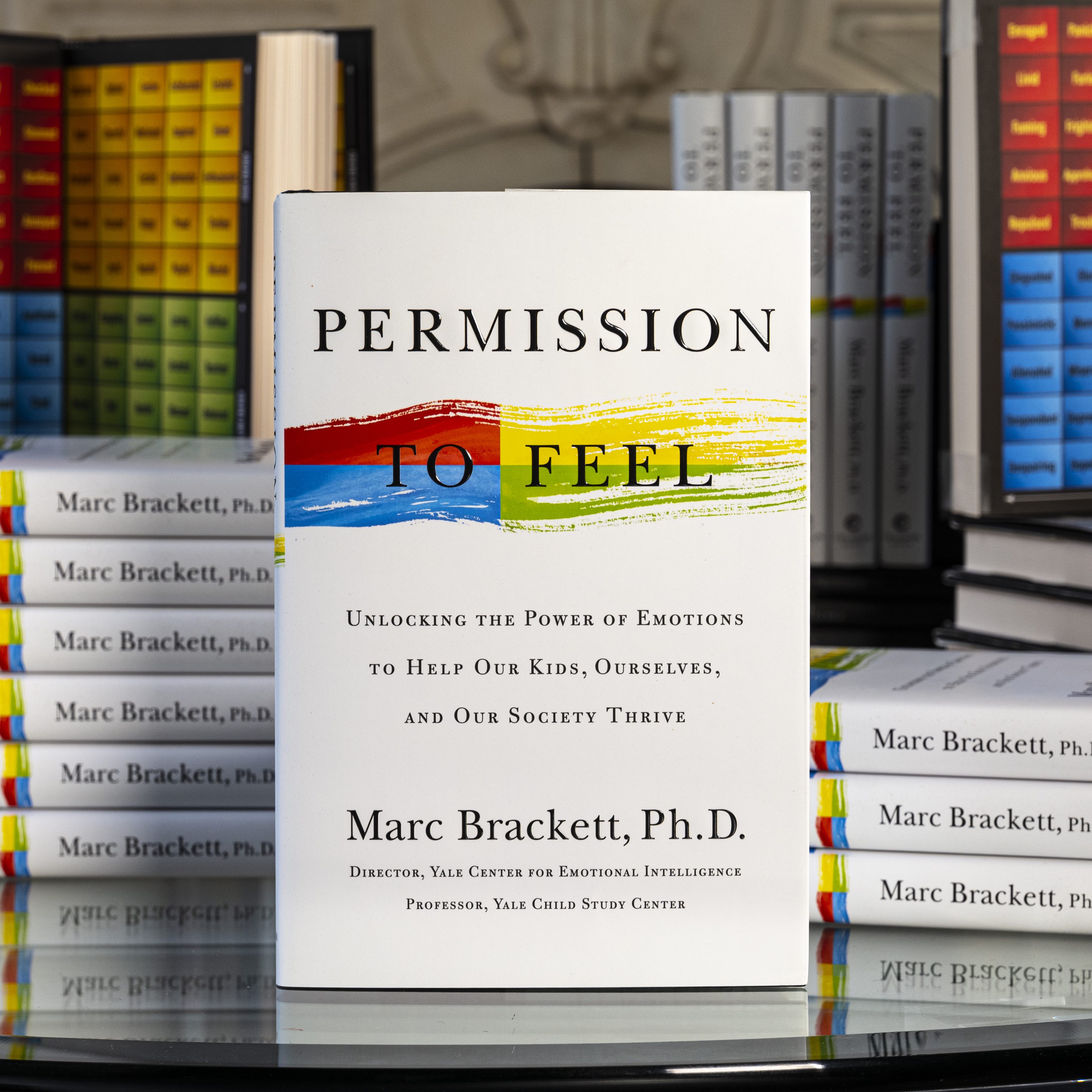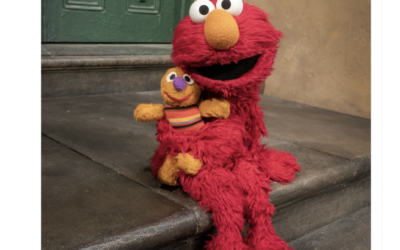Unlocking the Power of Emotions
How Yale’s emotion scientist, Marc Brackett, discovered an essential step to emotional intelligence: Permission to Feel
By Michael Miller – November 5th, 2019

As an adolescent coping with emotional and psychological hell, Marc Brackett learned to shut off his emotions. He was sexually abused by a neighbor in elementary school, bullied relentlessly in middle school, and largely ignored by his parents (at least emotionally). The result: he was crippled by fear, anxiety and anger. His feelings were so big and complex, he couldn’t even acknowledge that he had emotions.
That is, until his Uncle Marvin – a bandleader by night and middle school teacher by day – asked him a question that changed his life forever, a question that no one had ever really asked him:
“Marc,” he said, “How are you feeling?”
“It wasn’t just what he said,” Marc explains. “It was the way he said it – truly wanting to hear the answer, not judging me for what I felt. He just listened, intently and compassionately, as I untangled my emotional life. It’s so liberating when someone who cares about you just listens to and normalizes your experience. Uncle Marvin gave me permission to feel.”
Brackett, now the director of the Yale Center of Emotional Intelligence, says his path toward healing started with that conversation. Like so many of us, he had been socialized to minimize and ignore his feelings. He’d internalized the pervasive myths about feelings, such as messages that emotions are weak, that “big boys don’t cry,” and that he shouldn’t “be so emotional.”
Marc was trapped in the cycle that captures so many of us: Faced with a complex and painful situation, he magnified the problem by judging himself for his own feelings. It’s an unconscious but powerful process, and like many cultural norms, we don’t question it until someone else sees a different way. Uncle Marvin’s openness and curiosity gave Marc the permission to be open and curious. Marvin’s lack of judgment offered Marc a chance to stop judging.
The liberation of accepting emotions sparked Marc’s quest to understand feelings. Wanting to understand emotions and to help others break this cycle has now become his life’s work, and the subject of a powerful new book: Permission to Feel (here’s the book on Amazon).
What Can We Do with Bad Feelings?
To change people’s habits of suppressing emotions, Brackett says, we need to rethink the underlying assumptions we have about emotions, especially “bad” ones like anger, anxiety and sadness. As Six Seconds’ CEO Joshua Freedman advocates in this seminal article on viewing emotions as ‘neutral messages’, we need to rethink feelings as messages from ourselves, to ourselves:
“There is no such thing as a bad emotion,” Brackett says. “It’s really how much time you spend in that feeling and how you regulate that feeling that matters.”
Even anger, I asked?
“Even anger,” Brackett assured me. As an example of anger’s usefulness, Brackett cited how he deals with his anger toward our nation’s educational policies, a deeply personal issue that has been his life’s work since suffering from years of social isolation and bullying.
“My anger about our nation’s current education system motivates me,” Brackett explained, “How can we suspend kids as opposed to help them grow socially and psychologically? It’s an injustice. How can we treat kids this way? To me that constant awareness of the injustices is what keeps me going. And, as I said, how we use our anger is what matters most. Meaning if I went into a meeting with policymakers cursing and screaming profanities, that anger would be destructive for the achievement of my goals. But if I know how to use it wisely, I can use anger to create urgency that might lead to change.”
This distinction is also key in Six Seconds’ work on emotional intelligence (EQ). To develop EQ, one key step is to learn that feelings are not the same as behaviors. Then, to recognize our patterns of how our feelings, thoughts & actions come together in a reaction.
It starts with what Six Seconds calls “Know Yourself,” that open-self-awareness where emotions are simply messages: “When you give yourself permission to feel the full spectrum of emotions, and have strategies to manage the ups and downs effectively, emotions enrich your life. They don’t derail you from your goals, but rather support you in achieving them.”
How Can We Listen to Emotions?
In his new book, Permission to Feel, Brackett advocates for everyone to strive to become ‘emotion scientists;’ to develop the skills of inquiry characterized by openness and curiosity about your own and others’ feelings. This ‘attitude of scientist’ is core to Six Seconds’ methodology, and why our pioneering social-emotional learning methodology is called Self-Science. When Karen McCown, the original author of Self-Science, started this work in 1967, she wanted children to learn to observe themselves with the curiosity of a scientist.
“The emotion scientist is in learning mode, not knowing mode,” Brackett explains. “The emotion scientist asks questions and seeks to understand feelings. Instead of trying to suppress or change feelings, the emotion scientist says ‘Oh, that’s interesting. I wonder why I feel that way. What is that emotion trying to tell me?’ Then they use the strategies they know to utilize and regulate that feeling appropriately.”
Training a generation of kids to be emotion scientists is at the heart of Brackett’s work as the lead developer of RULER, the evidence-based approach to social and emotional learning developed at his Center.
Anabel Jensen, Six Seconds’ President, first came across this notion over 40 years ago when she got a job as a school psychologist at the Nueva School, one of the pioneers of the social emotional learning movement. The philosophy of being a self-scientist had far reaching impact. “It changed my life,” Jensen explains. “Even now, decades later, I use it daily as a process for making decisions, solving problems, for living my life.”
As Marc’s story and work confirms, Jensen isn’t alone. When we begin to treat emotions like valuable data, they can become part of what “EQ” author Daniel Goleman calls, a force for good. “What most people don’t realize,” Brackett says, “is that emotions are the drivers of attention, of memory, of learning, of judgment, of decision making. I wrote Permission To Feel to help people unlock the power of emotions so that their emotions help, rather than hinder, their success and well-being – at home, in school, and in the workplace.”
There is a growing body of emotion research suggesting this apparently-simple approach makes a tremendous difference. When we name our feelings, simply putting words to our experiences, we begin to develop a new self-mastery. This process of naming is, in fact, an example of emotional intelligence: getting our cognitive and emotional brains working together.
We can’t do this well, however, when we’re in a place of self-judgment and rejecting our own feelings. As Brackett says: “if we are spending an inordinate amount of time trying not to feel, then that is taking away resources from other things.”
So, like his Uncle Marvin did for him, Brackett hopes to provide himself and others with the permission to feel – and encourages all of us to join him.
The Emotion Scientist in Action: Permission to Feel
What to do next? Brackett suggests starting with your own feelings: “Do you give yourself permission to feel all emotions? Are you allowing yourself to be a full feeling self? Can you sit with your anger once in a while, or your sadness, or despair, as well as your excitement or your contentment?”
Then, how can you support others to treat emotions as a source of useful data? If you’re a parent or teacher, one step is helping children understand the logic of feelings. First, however, we need to make feelings part of our ‘normal’ conversation. Brackett suggests we practice Uncle Marvin’s approach of asking people about feelings with curiosity and openness: “Are you someone who is providing the permission to feel to others? For me it was my Uncle Marvin. Who’s your Uncle Marvin? Who are you going to be Uncle Marvin for?”
Marc Brackett, Ph.D., is the author of Permission To Feel, the Founder and Director of the Yale Center for Emotional Intelligence, and a Professor in the Child Study Center of Yale University.

What’s new in emotional intelligence?
Four Tips to Make A Culture of Learning from Mistakes: EQ Educator News
How emotional intelligence can help you learn from mistakes and make them a vital part of learning? Keep reading for EQ research and resources you can use for you, your faculty and students.
Emotional Intelligence to Reduce Teacher Burnout: EQ Education News
Is it burnout season? Teachers and parents everywhere are ready for a break. There’s never been a better time to practice emotional intelligence. In this month’s newsletter we explore how emotional intelligence can help with educator burnout. Keep reading for EQ research and resources you can use for you, your faculty and students.
Elmo Said WHAT? Research & Tips for Emotions for Wellbeing – EQ Education
When Elmo asked, LOTS of people answered. Checking in on emotions is a great step, but not enough for lasting wellbeing. Let’s put EQ into action this month!
EQ Education News: Am I Doing This All Wrong? 5 Tips for Parenting Shy Kids
Emotional intelligence skills are learnable at any age. In this month’s newsletter we explore the emotion Shy among children
What Makes Us Seek Connection? EQ Educator News
Experiencing a sense of belonging is a driver for our wellbeing. Research and tips to build connection and community.
EQ Educator News: Where Have All the Students Gone?
Why has school attendance plummeted? In this month’s newsletter, we explore the research and offer evidence-based solutions for educators.
- Pursue Noble Goals in the Six Seconds Model of EQ - July 29, 2023
- Increase Empathy in the Six Seconds Model of EQ - July 26, 2023
- Exercise Optimism - July 24, 2023








Helping people to deal with their emotions is a wonderful thing to be doing especially with children and young adults.
So much information on this topic.
The more I read about EQ, the more I realize that knowledge is power…I need to continue reading to learn more about this topic.
I learned about the effects of emotions, in my Psychology classes, on self and others. To this day I am surprised that emotional intelligence is not part of the educational curriculum before becoming a teacher. Again, it is up to us, as educators, to teach those who do not understand the effect emotions play in our every day life to be aware and prepared with the tools needed to help ourselves and those around us.
Hi i’m an Ed Tech and i love my job.I come to school with a positive attitude and a smile.
Hello, I’m Ismael Costa, Writer, Coach, Musician and Teacher. I am an educator with a passion for teaching. As a coach I have dedicated myself to training parents to form emotionally healthy children and thus avoiding a generation of emotionally blocked adults. I am interested in knowing, studying and applying the Six Seconds methodology here in Brazil. Is There Any Representative Already In Brazil? I would like to be a Partner or Represent to Six Seconds.
I await information
Thanks.
Hi Ismael! We will get in touch.